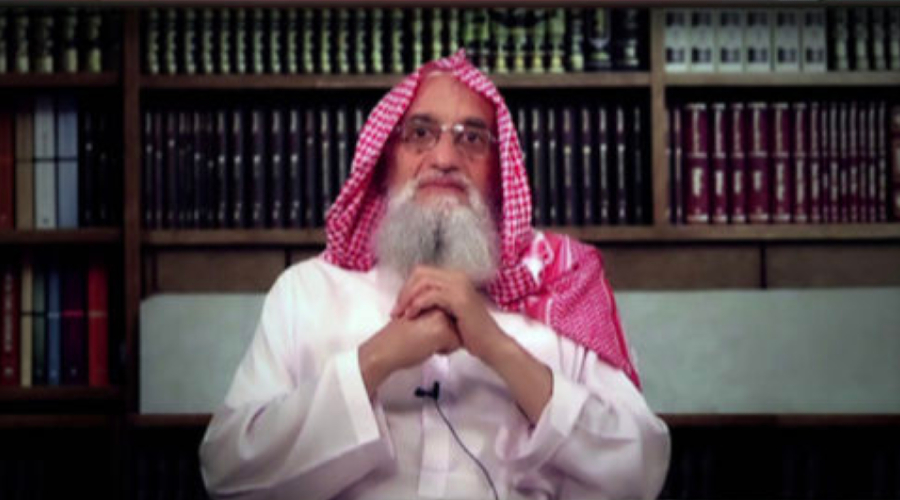The Perils of “French Islam:” France’s Misguided Response to the Paris Attacks
Editor’s Note: Terrorism's biggest impact is rarely in the violence of the attack itself. Rather, it is the government’s response -- for better or for worse -- that often determines whether a terrorist attack will succeed on a strategic level. Looking at the November attacks in Paris, Colin Geraghty of Georgetown argues that the French government is moving in the wrong direction, playing into the narrative of the Islamic State and making the terrorism problem worse in the long-run.
***
Published by The Lawfare Institute
in Cooperation With

Editor’s Note: Terrorism's biggest impact is rarely in the violence of the attack itself. Rather, it is the government’s response -- for better or for worse -- that often determines whether a terrorist attack will succeed on a strategic level. Looking at the November attacks in Paris, Colin Geraghty of Georgetown argues that the French government is moving in the wrong direction, playing into the narrative of the Islamic State and making the terrorism problem worse in the long-run.
***
The November 13, 2015 attacks in Paris shocked the French nation unlike any before it, including the January 7, 2015 attack targeting Charlie Hebdo. Because of their coordinated nature and seemingly random targeting of civilians, the recent attacks precipitated a new state of affairs in France. Although the shows of solidarity by French citizens and their determination to reaffirm the French joie de vivre – exemplified by the popular cry tous en terrasse (“all on the terrace [café patio]”) – are admirable, the decisions of their government risk undermining the nation’s long-term security and underscore the at best ineffective, at worst counterproductive, thinking that guides Western efforts to counter violent extremism. French authorities risk responding precisely as the Islamic State hopes: by framing its fight against the Islamic State as one of values and seeking to impose governmental control of Islam in France.
France’s leaders are leading the Republic down a dangerous path, relying on its particular brand of secularism – in which the state takes absolute priority over religion – and tradition of strong centralized government, to counter violent extremism. In particular, the announcement by the state-backed Conseil Français du Culte Musulman (“French Council of Islam”) that it will issue certificates to imams who prove their non-radical credentials is fraught with perils. This measure seeks explicitly to develop a “French Islam,” one that explicitly acknowledges French secular values, and marks the successful culmination of a campaign that gained new traction following the Charlie Hebdo attacks.
Attempts to coopt religious leaders will discredit the positions they advocate and likely favor those who promote a more radical interpretation of religious tenets. As the Algerian experience with Salafism shows, this initiative will be counterproductive and harmful to France’s interests. Many in Algeria believed the government’s efforts to promote Sufism were politically motivated. The government’s involvement compromises the integrity of the religious establishment, regardless of the legitimacy of its position or interpretation.
French authorities risk responding precisely as the Islamic State hopes: by framing its fight against the Islamic State as one of values and seeking to impose governmental control of Islam in France.
Moreover, actions taken during the current state of emergency can easily “securitize” France’s Muslim population, make them feel that they have to justify their loyalty to France, and are reminiscent of the “random” identity checks that followed the 1995 attacks in Paris by Algerian terrorists. Between July and October 1995, members affiliated with the Algerian Groupe Armé Islamique (Armed Islamic Group, GIA) orchestrated a series of bombings in Paris and nearby cities, including several that were foiled by French services or failed to go off, killing 8 people and injuring over 200. In response, French authorities reinforced border security and internal security measures that focused on the Muslim community.
The decision to recognize certain teachings over others, and to crack down on those that dissent, will also legitimize the notion of an “Islamic danger” facing France, creating a self-fulfilling prophesy and promoting a politics of fear. That fear will likely only lead to the election of leaders who favor more aggressive and intrusive policies. The far-right Front National (National Front, FN) has adroitly exploited the idea of an Islamic threat to traditional France under the talented leadership of Marine Le Pen. Since taking over the leadership of the party from its founder, her father Jean-Marie Le Pen, she has projected a far less polemical image (focusing on a populist message, rather than denying the Holocaust, for instance) that has helped her appeal to new voters, including many young people. She orchestrated the party’s rise in popularity by redefining its image, whether accurate or not, away from a bastion of xenophobia and portraying it as a dynamic alternative to the two establishment parties.
Today, the FN will use this climate, and the left-wing Socialist Party’s rejection of more stringent security measures to claim validation and clairvoyance. While some additional security measures may be necessary to counter a very real threat, those that abandon French values in favor of a hardline anti-Islam approach will only strengthen the hand of the FN. Though democracies must undoubtedly implement new measures to ensure the safety of their citizens, focusing excessively on tactical security gains can undermine strategic interests. Thus, the French government’s announcement that it would temporarily cease following several rights enshrined in the European Human Rights Convention may provide the government with expedient tools to pursue terrorist suspects, but also risks strengthening the message of the FN politically. Already, the results of the first round of France’s regional elections on December 6th indicate a sharp increase in the FN’s popularity, far more significant than the upwards trend it has experienced for the past 13 years. The party received the most votes in 6 out of 13 regions (and came within 0.2 percent of leading in a seventh) and registered “low scores” of 18 percent in regions where it fared the worst. Should the FN’s surge continue, it would simply reinforce the message that Muslim communities are not welcome in France – which is precisely the message the Islamic State hopes for, as it will eliminate moderate voices and enlarge its pool of recruits.
Finally, the decision to create a “French Islam” relies on the erroneous assumption that the best way to counter extremist groups is to prevent radicalization by bolstering moderate voices. The February 2015 White House Summit on Countering Violent Extremism called for “empowering moderate voices and undermining violent extremists” online. This assumption, which also underpins many so-called “countering violent extremism” programs today, presents several problems. First, it turns the situation into a conflict over values, which is precisely what groups such as the Islamic State want, because this frames the debate in terms of making a choice between one’s beliefs and submission to the state, suggesting that certain beliefs are incompatible with the state. From there, it is easy to slip into debates over “true Muslims,” a debate Western governments will never win due to an obvious lack of legitimacy. This can turn individuals with passive extreme beliefs into active opponents who feel oppressed and compelled to defend themselves.
Finally, the decision to create a “French Islam” relies on the erroneous assumption that the best way to counter extremist groups is to prevent radicalization by bolstering moderate voices.
Counterterrorism policies should not focus on beliefs, but on deterring and preventing acts of violence: past initiatives suggest that non-violent “radical” preachers can be the most effective means of undermining terrorist groups’ legitimacy and their ability to recruit. For example, in London, former jihadists who had renounced violence but not their religious beliefs emerged as highly influential voices in countering al Qaeda’s message. It is precisely because these individuals have independent credibility that their message is so effective – and so dangerous to organizations that use terrorist tactics. Former jihadists, as well as “quietist” Salafists, that advocate hardline political views but oppose violence, cannot be accused of being Western stooges or sellouts, whereas most Western-supported outreach programs, whether domestic or international, have little chance of reaching the “at risk” populations. Those most likely to respond to a Western-backed program in a foreign country, or a government initiative domestically, are those least likely to seek out violent organizations; conversely, those least likely to respond to such programs are the most “at risk” of being recruited. Those headed down the path of radicalization need an off-ramp that justifies the decision to avoid violence while providing space that will hopefully moderate their views over time.
This underscores a need for a fundamental rethink in Western preventive counterterrorism policies. It is imperative that Western governments move away from debates over values and seek more modestly – and more effectively – to prevent hardline views from translating into violent opposition. Though the quest for an effective policy that would solve the terrorist threat continues, at the very least Western governments can avoid taking the steps the adversary desires. France, specifically, must question whether its model of necessitated assimilation---versus integration of the Anglo-Saxon model that allows for expressions of community identities, in a multicultural society---truly works: the noble principles of the French Republic seem, in practice, to encourage a sense of alienation from the state that lowers the bar of pursuing violence against it.
***
Colin Geraghty is the director of the NxGen International Security Network, a graduate student in Georgetown University’s Security Studies Program, and a fellow with the Wilson Center’s National Security Task Force. He lived in France for 16 years, including 11 in Paris. The views expressed here are the opinions of the author and do not represent the views of any institution or organization.




